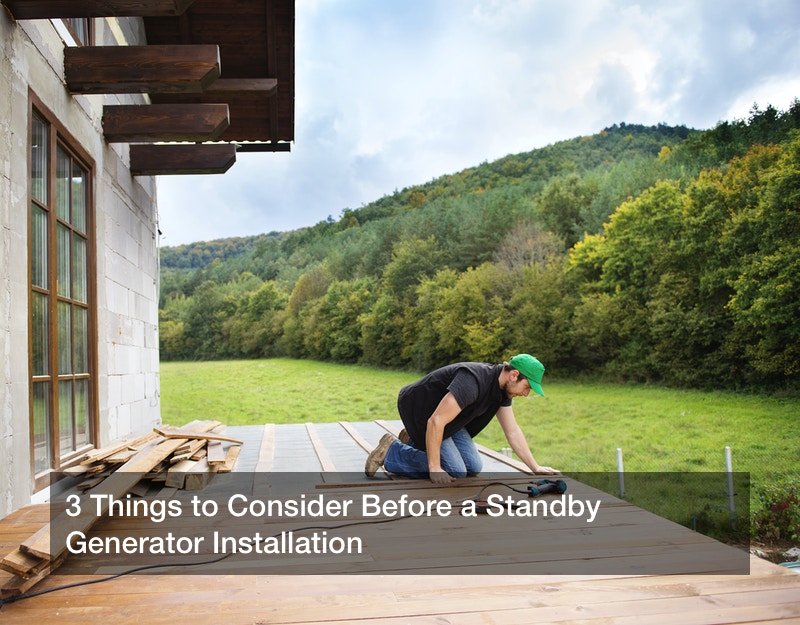
Storms and other similar weather conditions can wreak havoc on electrical grids. This can cause you to lose power for hours to weeks. If you lose power for more than four hours, your food in the refrigerator and freezer can become spoiled. Many homeowners use an emergency generator as backup power, but these have limited supplies of electricity to keep running. Standby generators are permanently wired into your home and have enough fuel to survive an extensive power outage. Here are three things to consider before a standby generator installation.
Generator Capacity
A generator is rated by the amount of watts they produce. Higher wattages mean you can power more devices during an outage. Portable generators typically have a 2kW to 4kW rating, where whole house generators feature a 20kW rating. If you just need to keep a few lights and appliances on, you can get away with a generator installation in the 5 to 10kW rating range. Heating and air conditioning for a medium sized home require a standby generator that’s in the 20 to 22kW range.
You can use a generator size calculator online to determine what you’ll need. You can also contact generator installers in your local area to help you select the ideal standby generator for your home. You may want to consider researching various options online so you can find the best deals.
Choosing the Best Fuel
For your standby generator to perform properly, it needs the best fuel. During a power outage or natural disaster, generator fuel supplies may be unavailable. You’ll want to make sure you have plenty of fuel to power your home for an extended period of time, There are four main fuels used to power generators. Gasoline isn’t an ideal choice for standby generators because of their high volatility and deterioration over time.
Diesel can be an ideal and efficient choice for standby generators. An external tank will need to be installed if you need to store more than a day’s worth of fuel. Propane gas is easy to store. Natural gas supplies are rarely affected by storms and natural disasters and you can store large quantities.
DIY or Professional Installation
Installing a standby generator yourself can be a challenge. If you do it incorrectly, you can risk gas leaks and accidental electrocution. You may want to consider a professional for generator installation. These professionals have the experience to ensure the job gets done right. They can also assist you in choosing the best generator for your needs.
A standby generator is essential if you live in an area affected by power outages from severe weather conditions. By controlling your power, you can have peace of mind and live uninterrupted from outside weather events. Install a standby generator in your home today!
